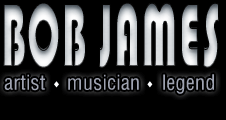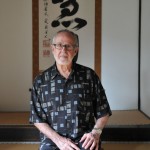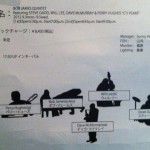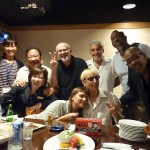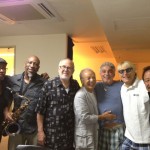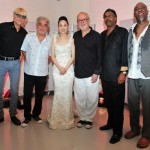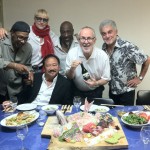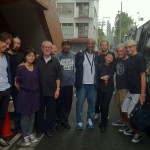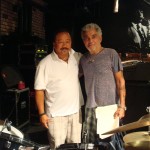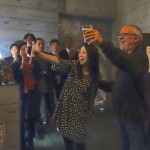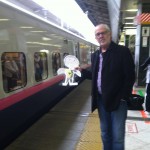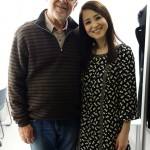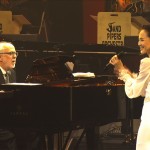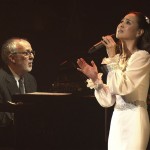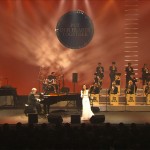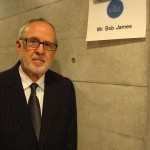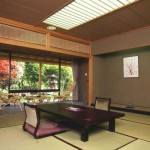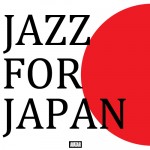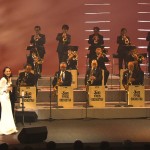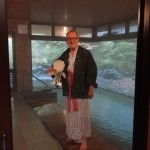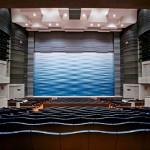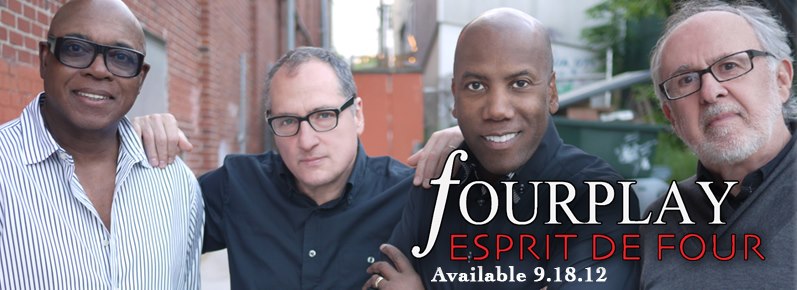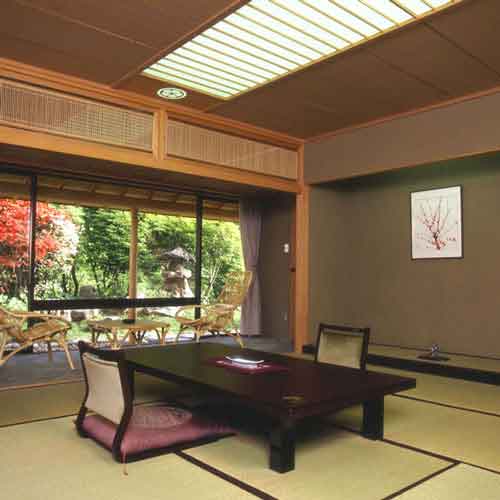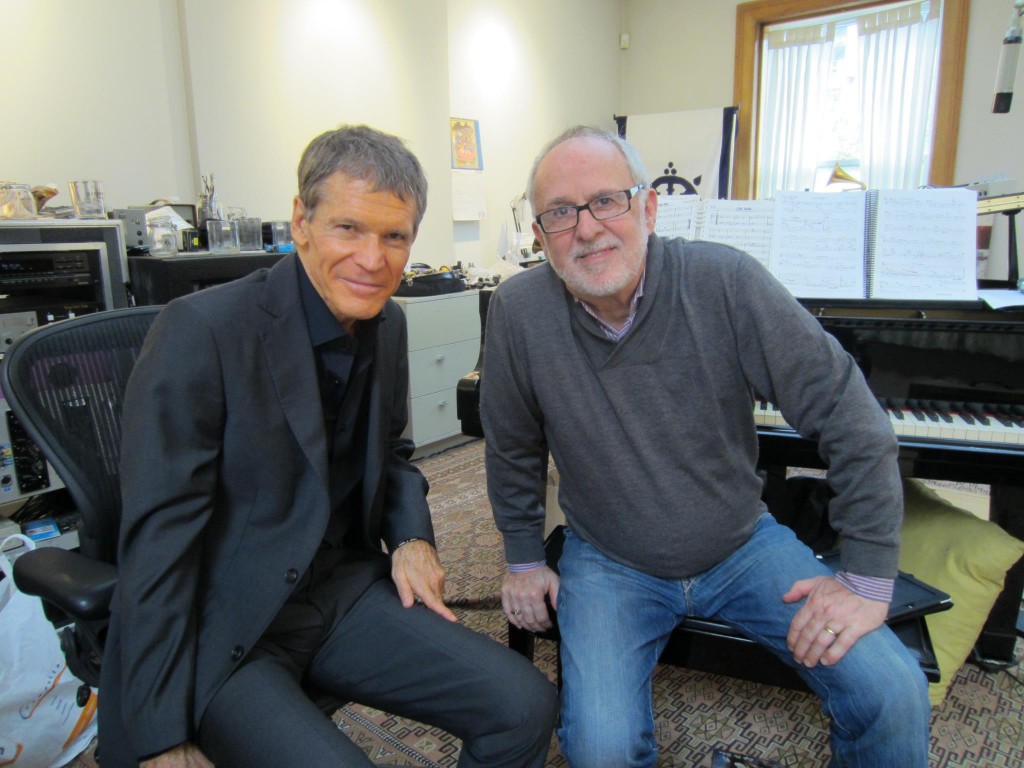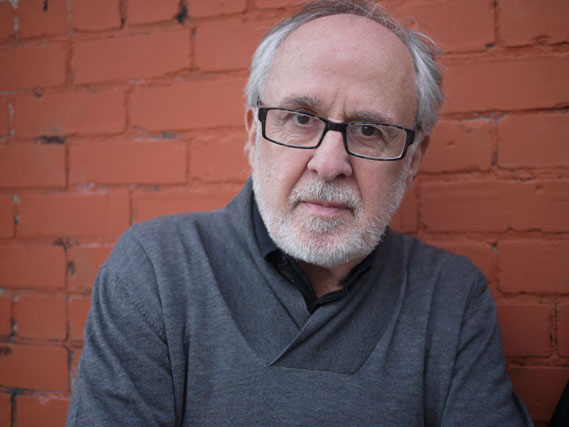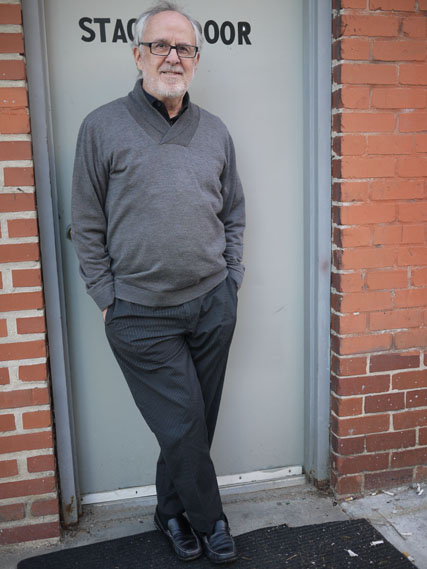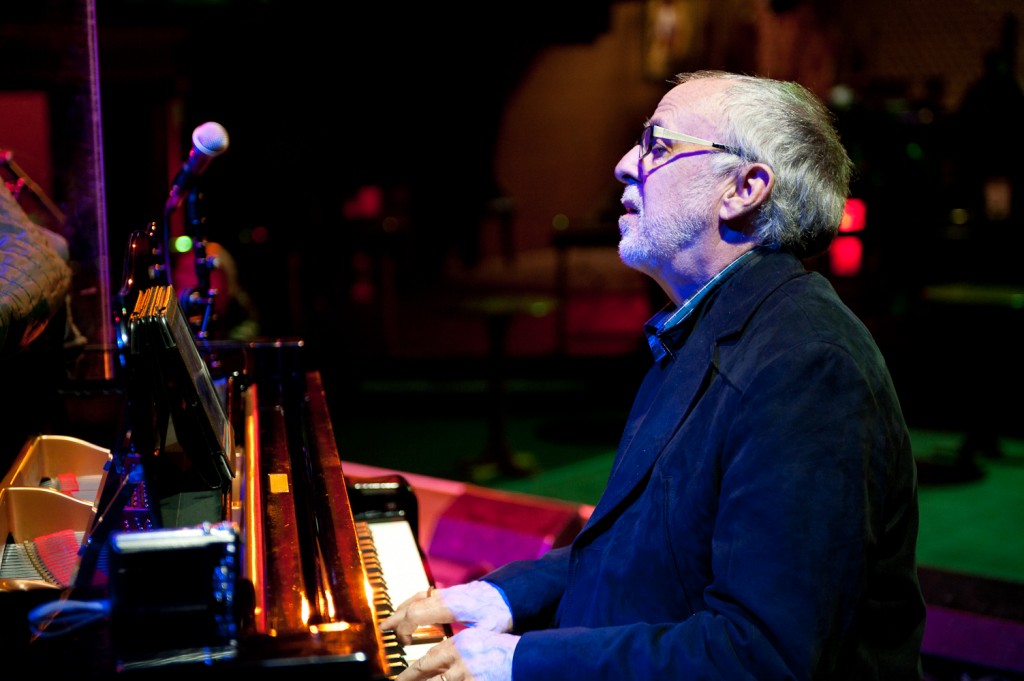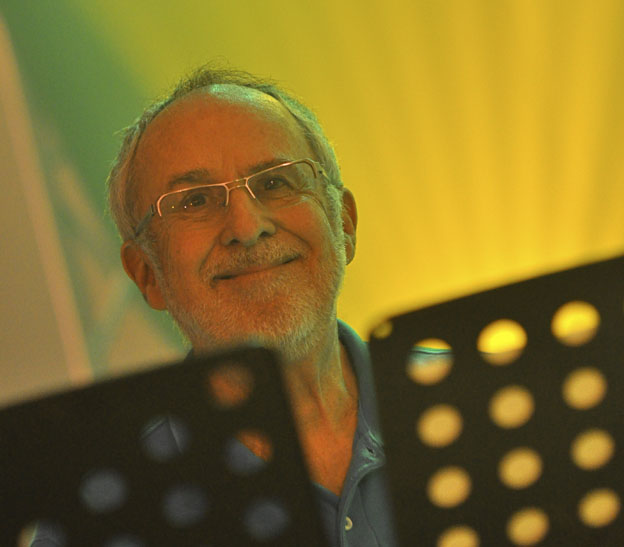Browsing Tags tokyo
Cruise the Skies to the sounds of Fourplay with Delta Airlines
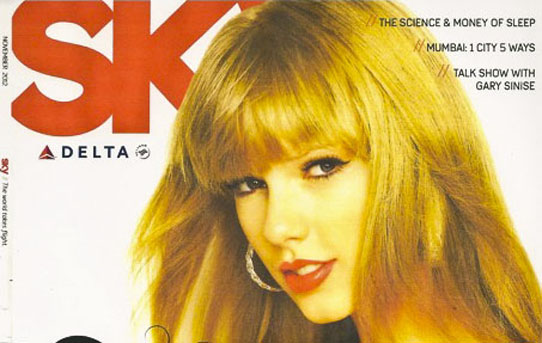 Fourplay fans traveling the friendly skies with Delta Airlines will be in for a treat.
Fourplay fans traveling the friendly skies with Delta Airlines will be in for a treat.
Fourplay’s singles “December Dream” & “Venus” are being featured on Delta Airlines “In Tunes”, a service they provide for travelers.
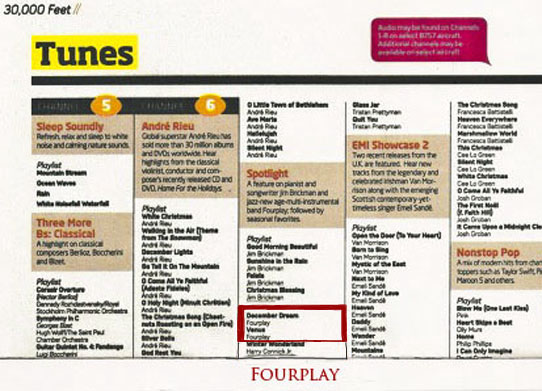 So if you are traveling Delta, check out the “In Tunes” service, and relax to the smooth sounds of Fourplay…
So if you are traveling Delta, check out the “In Tunes” service, and relax to the smooth sounds of Fourplay…
The Bob James Quintet @ The Blue Note Tokyo
Related show
Ofunato “Jazz for Japan” Benefit
Related show
Bob James & Seiko Matsuda’s Performance at Ofunato “Jazz for Japan” Benefit
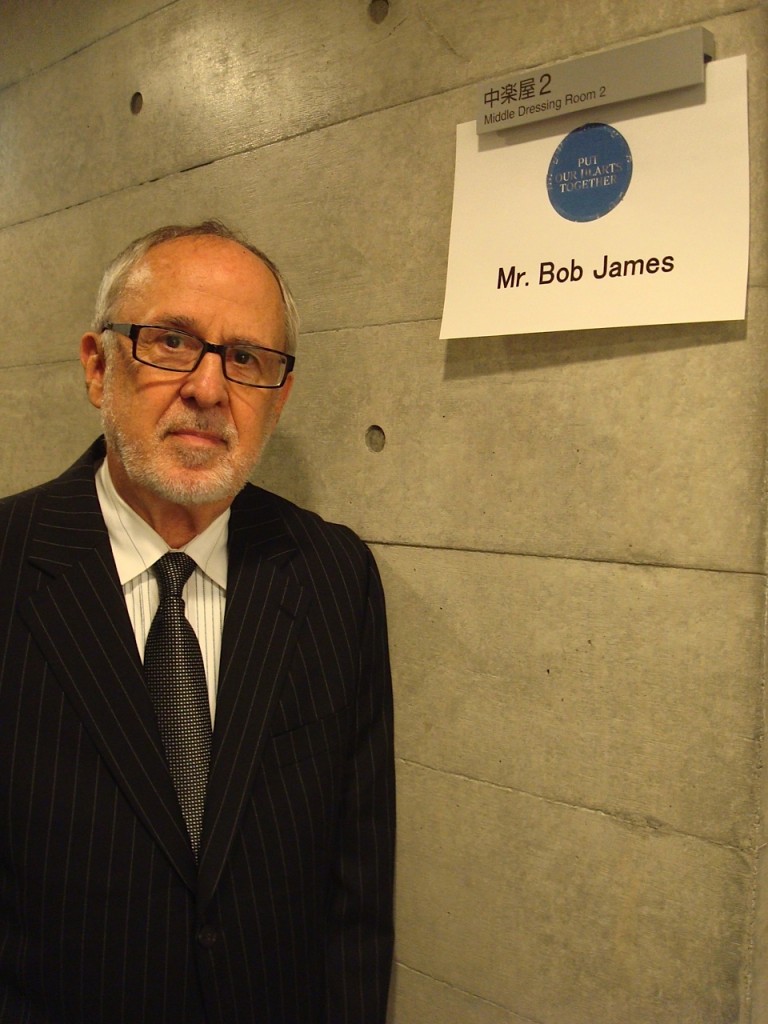 Bob James performed at Rias Theatre in Ofunato, Japan for another “Jazz for Japan” Benefit.
Bob James performed at Rias Theatre in Ofunato, Japan for another “Jazz for Japan” Benefit.
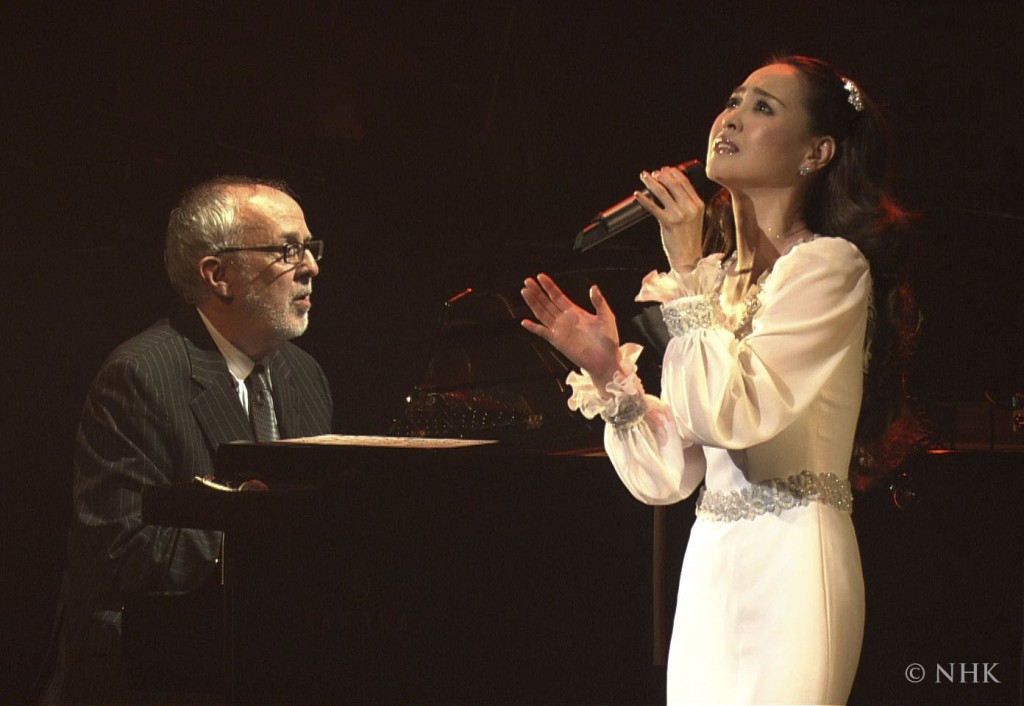 Bob and daughter Hilary’s composition of “Put Our Hearts Together”, hit an all time high, touching the people of Ofunato in a very moving way. The song was written for the local Jazz band The Sand Pipers, who accompanied Bob and the elegant Seiko Matsuda on stage for the performance. The song was also sung by Seiko on Fourplay’s new album Esprit De Four, and has seemingly has taken on a life of courage and healing.
Bob and daughter Hilary’s composition of “Put Our Hearts Together”, hit an all time high, touching the people of Ofunato in a very moving way. The song was written for the local Jazz band The Sand Pipers, who accompanied Bob and the elegant Seiko Matsuda on stage for the performance. The song was also sung by Seiko on Fourplay’s new album Esprit De Four, and has seemingly has taken on a life of courage and healing.
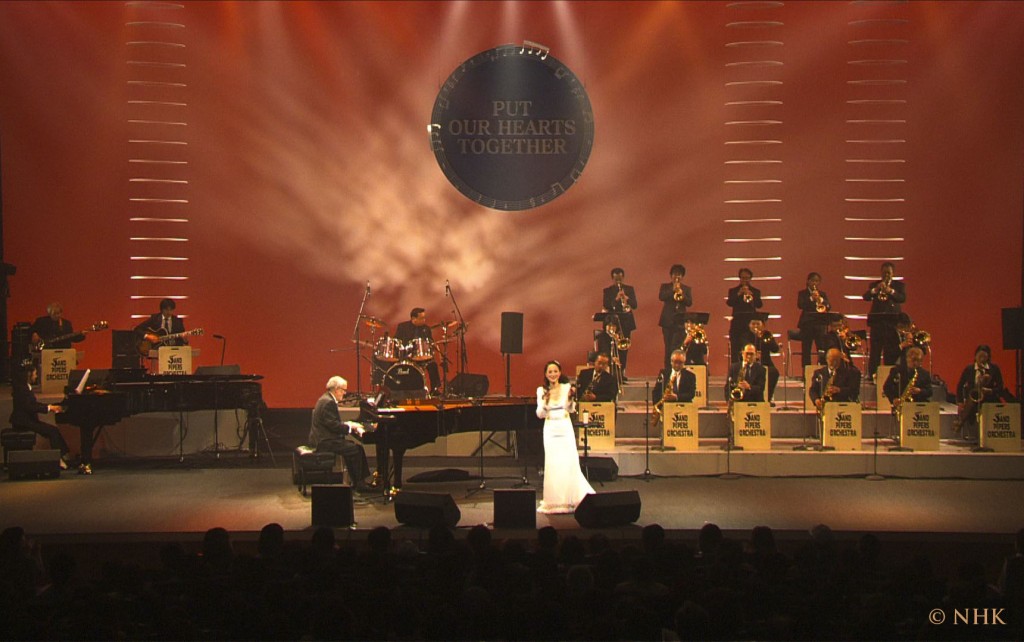 Many members of the Sand Pipers Orchestra, were touched in dramatic ways by the natural disaster, losing family and homes in the region. The devastation of the land, and what the people of the region have endured as they have faced the challenges of recovery is moving. It leaves one feeling an endearing connection to the people and land of this charming community and fishing city.
Many members of the Sand Pipers Orchestra, were touched in dramatic ways by the natural disaster, losing family and homes in the region. The devastation of the land, and what the people of the region have endured as they have faced the challenges of recovery is moving. It leaves one feeling an endearing connection to the people and land of this charming community and fishing city.
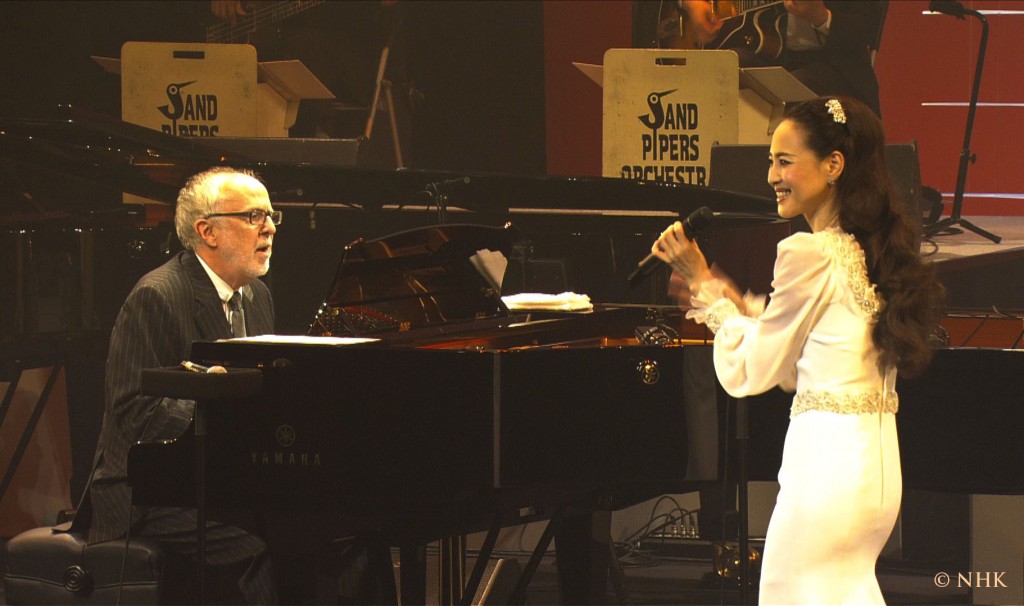 The “Jazz for Japan” Ofunato Benefit Concert is the brainchild of visionary Atsuko Yashima of NHK, who produced and documented the touching evening.
The “Jazz for Japan” Ofunato Benefit Concert is the brainchild of visionary Atsuko Yashima of NHK, who produced and documented the touching evening.
5000 paired lottery holders were selected for the 1100 seat Rias Theater, an absolutely beautiful venue, which was spared by the disaster due to its elevated location.
 The most surprising moment of the evening was Seiko’s performance of “Put Our Hearts Together”, for which she wrote Japanese lyrics to the song…and she nailed it. Tears could be seen gracing the eyes of everyone in the venue, as she beautifully phrased Hilary’s lyrics. Watching the teleprompter transition from English lyrics to Kanji was moving, and the crowd truly felt the message of the song.
The most surprising moment of the evening was Seiko’s performance of “Put Our Hearts Together”, for which she wrote Japanese lyrics to the song…and she nailed it. Tears could be seen gracing the eyes of everyone in the venue, as she beautifully phrased Hilary’s lyrics. Watching the teleprompter transition from English lyrics to Kanji was moving, and the crowd truly felt the message of the song.
Take It to the Entertainment Bank…Fourplay Delivers Another Classic Album
 Fourplay, the contemporary jazz group known for their incredibly smooth jazz, recently released their newest album, “Esprit De Four”. Let me just say this: Some things only get better with time, and Fourplay appears to be in that category. The album is sizzling hot from the moment it begins until the very last note is played, and has been met with critical acclaim and garnered praise from fans as well. How do they do it? I think the proper word is SYNERGY. The four (keyboardist Bob James, bassist/vocalist Nathan East, guitarist Chuck Loeb, and drummer/percussionist Harvey Mason) are immensely talented musicians individually. However, their combined efforts are greater than the sum of their individual greatness. SYNERGY. They’ve got plenty of it, and there’s enough on the album to satisfy the most discerning of jazz fans. Released on Heads Up International, a division of Concord Music Group, “Esprit De Four” belongs in every jazz connoisseur’s collection.
Fourplay, the contemporary jazz group known for their incredibly smooth jazz, recently released their newest album, “Esprit De Four”. Let me just say this: Some things only get better with time, and Fourplay appears to be in that category. The album is sizzling hot from the moment it begins until the very last note is played, and has been met with critical acclaim and garnered praise from fans as well. How do they do it? I think the proper word is SYNERGY. The four (keyboardist Bob James, bassist/vocalist Nathan East, guitarist Chuck Loeb, and drummer/percussionist Harvey Mason) are immensely talented musicians individually. However, their combined efforts are greater than the sum of their individual greatness. SYNERGY. They’ve got plenty of it, and there’s enough on the album to satisfy the most discerning of jazz fans. Released on Heads Up International, a division of Concord Music Group, “Esprit De Four” belongs in every jazz connoisseur’s collection.
 “Esprit De Four” embodies contributions from all members of the group, which for more than two decades has been making us feel the groove. “Esprit De Four” debuted at #1 on Billboard’s Contemporary Jazz chart, which speaks volumes. So does the album, and listeners will love what it’s saying.
“Esprit De Four” embodies contributions from all members of the group, which for more than two decades has been making us feel the groove. “Esprit De Four” debuted at #1 on Billboard’s Contemporary Jazz chart, which speaks volumes. So does the album, and listeners will love what it’s saying.
“December Dream” begins simply and then flows to a full stream and out into a ocean of music. This group simply overwhelms me with their sound. It is pure and very sophisticated as they play in a synchronized flow that is perfectly connected. It doesn’t matter which of the four is taking the lead, one can count on it to be consistently outstanding. “December Dream: sets the stage for everything that follows on this very beautiful CD. The overall theme is mellow, however, with Fourplay, even mellow is enormous. This is an album from a very special place of creativity and distinction, and no amount of words that I write can prepare you for just how great it is. This is one of those CDs that you “Run, don’t walk, and buy!!
Related show
A fan who felt the ‘Esprit De Four’…
Please forgive the delay in sending this email.
Life has had me a little crazy lately, and I have been on the road quite a bit, but your music has been getting me through the madness.
I just got finished listening to it again and said to myself that I have to take this moment to let you know how much I absolutely love it! I loved it so much that when I first brought it and heard it, I went back and purchased 4 more for my brothers for their birthdays, and one for my sister. They all love it as well.
As always, Fourplay does not fail to impress. Beautiful work from all involved! I am so jealous and in awe of a musician’s ability to transcend through their instruments, music which brings such joy, calm, and peacefulness, and I thank God for it.
~ J
Bob James Visits Japan for a “Jazz for Japan” Benefit Concert
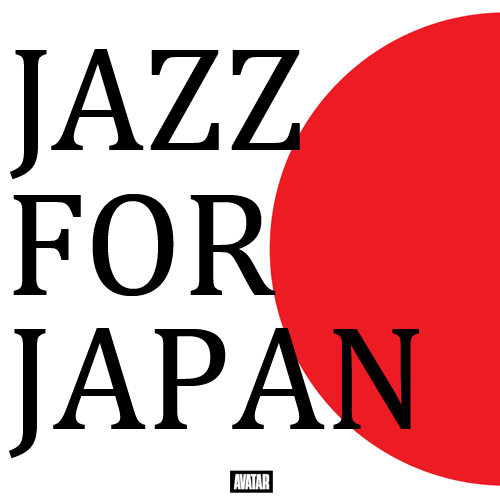 Ofunato Rias Hall
Ofunato Rias Hall
 Bob James performed with Seiko Matsuda at a Jazz for Japan benefit concert in Iwate, Japan. at the stunning Ofunato Rias Hall.
Bob James performed with Seiko Matsuda at a Jazz for Japan benefit concert in Iwate, Japan. at the stunning Ofunato Rias Hall.
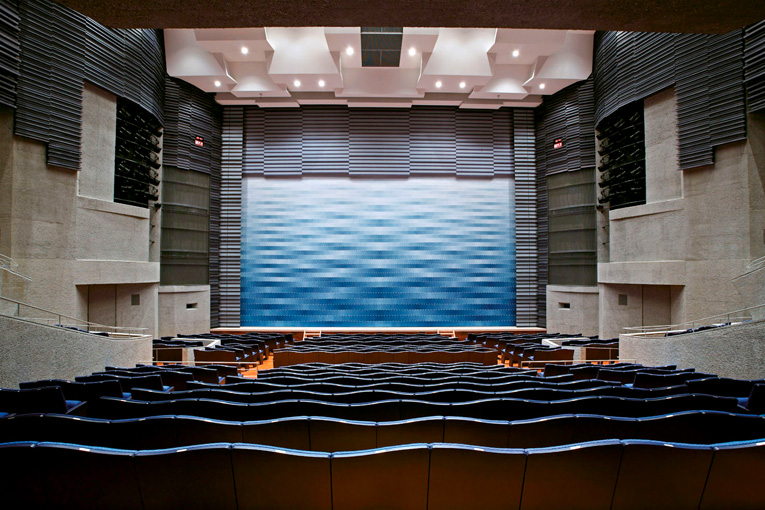 Hotel “Shiki-tei” in Iwate, Japan
Hotel “Shiki-tei” in Iwate, Japan
 Bob-san seemed to enjoy the peaceful environment at Hotel “Shiki-tei”, as it is located deep inside a hot spring resort area. The tranquil, authentic Japanese-style inn is a great way to relax after a long journey, and specializes in traditional, kaiseki-style multi-course dinners using locally grown ingredients.
Bob-san seemed to enjoy the peaceful environment at Hotel “Shiki-tei”, as it is located deep inside a hot spring resort area. The tranquil, authentic Japanese-style inn is a great way to relax after a long journey, and specializes in traditional, kaiseki-style multi-course dinners using locally grown ingredients.
Related show
Bob James & David Sanborn…Stay Tuned!
Bob James: The Huffington Post Interview
Mike Ragogna: Hello, Bob!
Bob James: Hi Mike. So you have one of those big black solar panel things outside your station gathering power from the sun, huh? (Note: This interview was also conducted for Solar-Powered KRUU-FM)
MR: We actually have a couple of them!
BJ: And they work good? Your voice sounds real clear to me! Is the sun out there?
MR: The sun is out here today. Yay! Yeah we’re doing really well.
BJ: About seven o’clock last night, we needed some of that because we had a thunderstorm and a big blackout here for about six hours and we were wandering around with candles and flashlights.
MR: Well, in a way, I’m sorry to hear that, but it could be romantic, right?
BJ: It kind of was. We dealt with it just fine and we ended up just going to sleep and by the time we woke up this morning, it was back up again.
MR: What, no song came out of this?
BJ: Not yet. Not yet. We can always hope. Isn’t there a “Solar”–no, that’s “Sonar,” I think that’s a song by Miles Davis. It rings some kind of a distant bell, but I don’t know about “Solar.”
MR: Ah, Miles Davis. I owned every album, but when I moved from California, poof, all gone. I’m now recollecting Miles Davis, and I have to tell you, it’s costly, but it’s a little fun going back and recollecting it all.
BJ: Isn’t there that humongous box that I’ve seen in record stores, maybe over in Japan, where it has everything Miles Davis ever did in one box? Thousands of dollars.
MR: It’s true, one exists. But what fun is that?
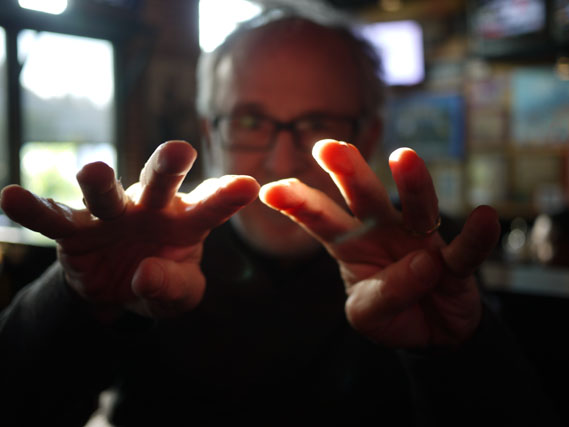 BJ: Yeah, I guess so. If you like the collecting part of it that is the fun. But you might be interested to know, not that it pertains that much to this interview or not, but I just released a solo piano record in Japan on something called a Crystal CD. I don’t know if you’ve heard of it, but one Crystal CD costs fifty-thousand yen, which is the equivalent of about six-hundred dollars. So in this era of people not being willing to spend fifteen bucks for a CD, we’re hoping that some of the high-end audio buffs are going to spend six hundred dollars for one CD over there.
BJ: Yeah, I guess so. If you like the collecting part of it that is the fun. But you might be interested to know, not that it pertains that much to this interview or not, but I just released a solo piano record in Japan on something called a Crystal CD. I don’t know if you’ve heard of it, but one Crystal CD costs fifty-thousand yen, which is the equivalent of about six-hundred dollars. So in this era of people not being willing to spend fifteen bucks for a CD, we’re hoping that some of the high-end audio buffs are going to spend six hundred dollars for one CD over there.
MR: What is the resolution like? It’s got to be like 96k or something, right?
BJ: It’s probably beyond my hearing. I know we recorded it in a one-bit Sony esoteric machine. Mostly it’s the material of the glass or Crystal CD itself that I think makes it so special. Even I could sense a difference not even playing it on a high-end CD player. Just playing it through my computer there was a kind of smoothness about it. Whether it’s worth the six hundred bucks or not I guess it depends on the kind of system you have or whatever, but it’s the first time I’ve ever done anything like it before and I’m fascinated to see how it goes.
MR: Wow. Remember the gold CD phase that we went through?
BJ: I do, and I guess this is something similar to that. I remember one of the high-end audio guys saying that he believes that there was something hard-edged about gold that doesn’t reflect the same way that this new crystal does, and he believes that this crystal CD material is much more high-end exotic than the gold one was.
MR: Wow. That’ll be interesting to see what these sound like. I hope they do make it to the states and we do have a little bit of an audiophile return for a little bit. It seems like we’ve been retreating from audiophile for so many years now.
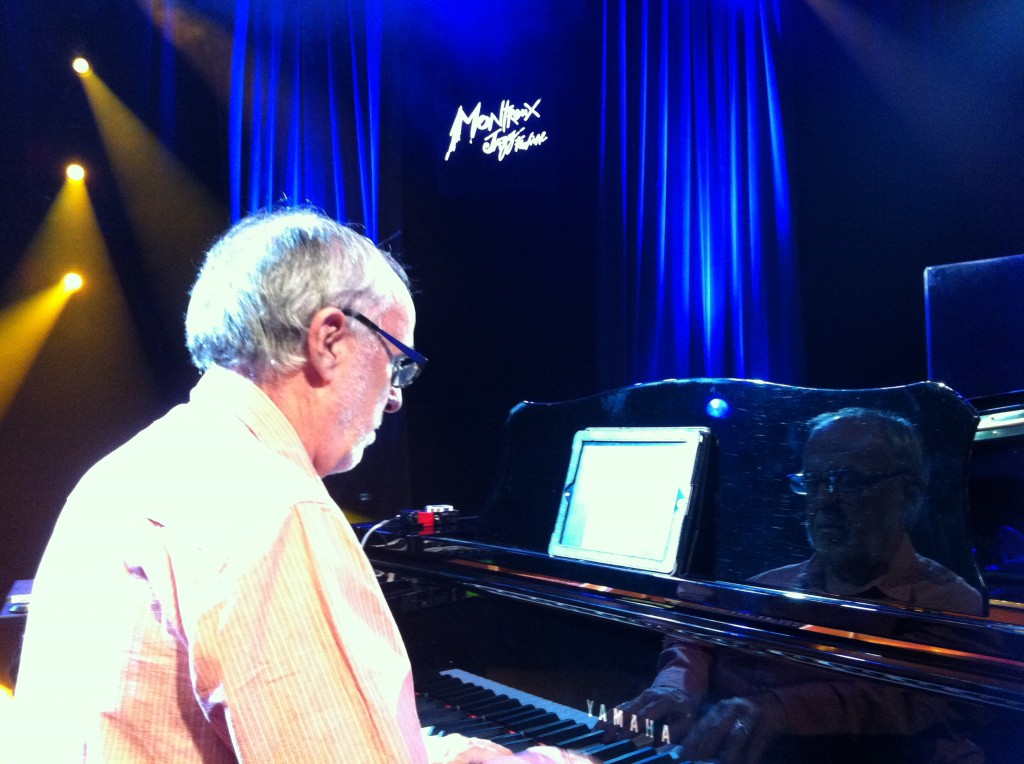 BJ: I know, and that’s what I loved about this project. No matter how it turns out economically, but at least it was a statement going in this high direction rather than the low MP3 direction where everybody wants to squeeze a hundred thousand tunes in to their phone and the lower resolution the better so they can squeeze more in and it’s a drag. We really do still try to keep the standards up. I know with Fourplay, we try very hard to keep our standards up in the studio and get the best engineers in the business and we still have to cater to that high end even though they may be in the minority.
BJ: I know, and that’s what I loved about this project. No matter how it turns out economically, but at least it was a statement going in this high direction rather than the low MP3 direction where everybody wants to squeeze a hundred thousand tunes in to their phone and the lower resolution the better so they can squeeze more in and it’s a drag. We really do still try to keep the standards up. I know with Fourplay, we try very hard to keep our standards up in the studio and get the best engineers in the business and we still have to cater to that high end even though they may be in the minority.
MR: Interesting. This is really great. What’s the name of that album, by the way?
BJ: It’s called Alone. They’re releasing it first in Japan in this high-end format and then toward the end of the year we’re going to release it in a more conventional CD format both in Japan and here in the US. They’re working on getting my label for that so it’s a little bit premature to talk about it over here yet til I get everything settled with the label, but I’m hoping by the end of the year, it’ll be released here in the US.
MR: Let’s get into your new Fourplay album. It’s titled Esprit De Four, as opposed to Esprit de Corps, very clever.
BJ: Well, we’ve been having fun trying to describe that to people who are not that conversant in pronouncing French because if you look at the spelling of Esprit de Corps, some people look at it and they see “Corpse,” but that’s one step removed from how we hope that they will understand it as a rhyme, Esprit De Corps rhyming with Esprit De Four and for us it really ties in with the idea of the team spirit that is generated. I guess the origin of Esprit de Corps was in the military; everyone working together for a common goal. We really feel like it fits what we’ve tried to achieve in this group: a balanced contribution from everybody and everybody working together for the sound of the team.
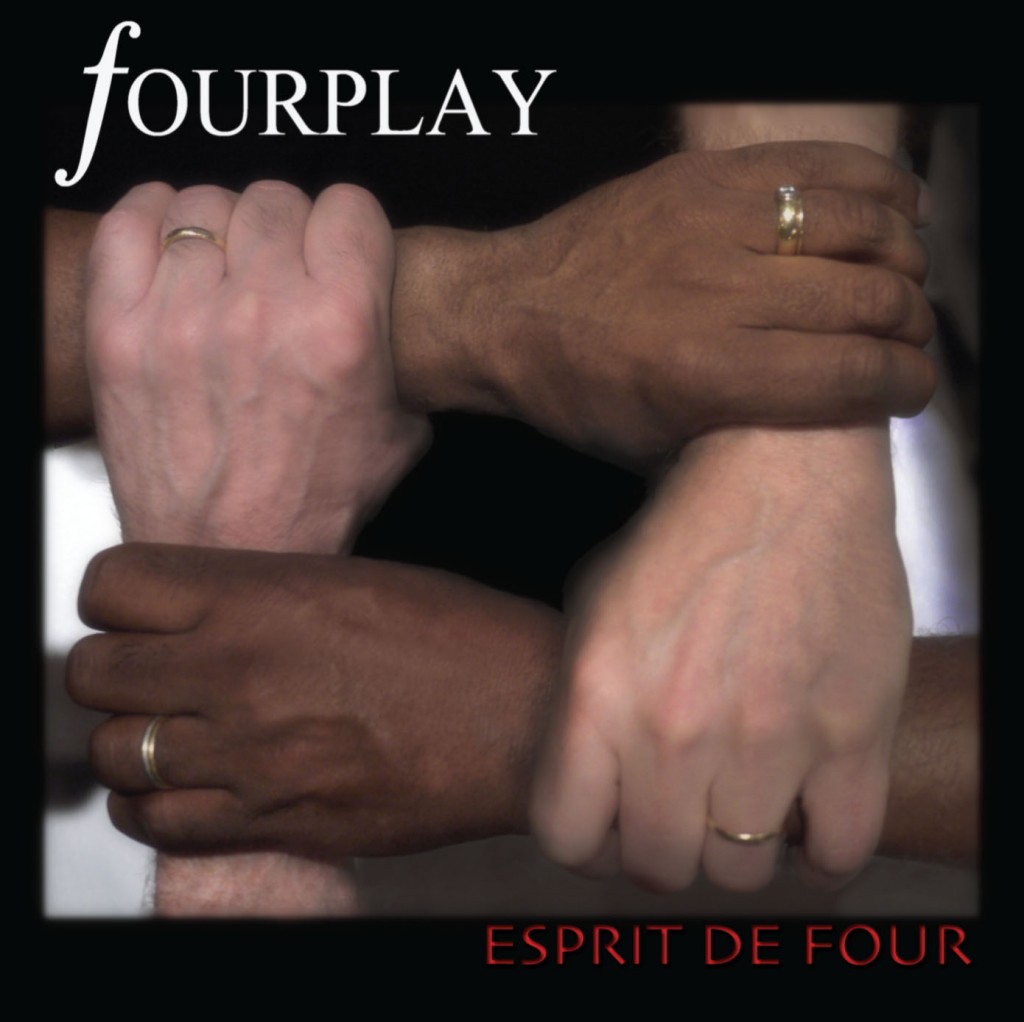 MR: Very nice. I also wanted to say that this come off your last album, Let’s Touch The Sky, which has a similar effect and there is, of course, Chuck Loeb appearing on both albums. That had an effect on the chemistry of the group, right?
MR: Very nice. I also wanted to say that this come off your last album, Let’s Touch The Sky, which has a similar effect and there is, of course, Chuck Loeb appearing on both albums. That had an effect on the chemistry of the group, right?
BJ: It absolutely did. Of course, when Larry Carlton decided to leave we respected his decision and he had many things he wanted to do in a solo career and we had a wonderful run with him, I guess more than ten years, but we knew that the group was going to change. From the very beginning, we really emphasized strongly to Chuck that he didn’t need to try to alter his sound or his personality or anything. We wanted him to bring everything he had and just let the group’s sound change to incorporate what Chuck brought to it, and he really took that to heart and jumped in headfirst with great tunes on Let’s Touch The Sky that really challenged us. There was one song in particular, “3rd Degree,” that was very physically challenging to play, and he was a little bit reluctant to even present it because he didn’t know whether that would be the right direction or not, but we jumped on it immediately. We felt that it was a really fresh composition and it sent us back to the practice room to try to keep up with him but it was really fun to do that. “Sonnymoon” was another example of it that he brought to this project that has Chuck’s virtuosity and we hope that it doesn’t just sound like we’re playing catch-up to try to keep up with him. We hope we’ve achieved a kind of level grounds where we’re all having fun.
MR: Yeah, it does sound like it. It also sounds like you guys, speaking of audiophiles, it sounds like where most groups are trying to force a contemporary synthesizer approach to whatever they’re doing, it seems like you guys are trying to take on more of the classic approach that the older jazz recordings had. Not that this sounds like an old recording in anyway, but it does sound like it’s going back to that as opposed to what you would normally think of as smooth jazz or something.
BJ: I know what you’re saying. So many people are complaining about the state of economics now in the CD world where much fewer people are buying CDs. We feel that that in a way creates an opportunity for us to be more free thinking about going whichever direction we feel because we’re not trying to follow any commercial patter or any restrictions from radio station formats that we have to do in a certain way in order to get hear don the radio. We just play what inspires us and compose in that way and try to make our standards as high as we can. That’s fun. It’s a very much uninhibited kind of approach and yes, more like the way we remember things back twenty years ago.
MR: Yeah, and further, because it has melodies that don’t try to stick to a pop melody, per se. Everybody was aiming for that hit like you were talking about with radio changing with the scene changing. You don’t have to emphasize trying to have that hit, and if you’re not trying to have to that hit, you don’t have to have the pop melody popping up every three seconds within your recordings.
BJ: Yes, and I believe our best chance for success in the sense pleasing people and inspiring people with our music is if we stick to what we feel passionate about. Whatever constitutes a hit, there are many ways of looking at that. We can be successful artistically, and that feels like a hit. It’s not necessarily attached to numbers, but how well we accomplish what we set out to do. I know that I want to be as ambitious as I can, not necessarily to try to be a snob or be above people’s heads, but to please myself first and then hope that it pleases the listeners.
MR: Bob, “Sonnymoon,” that’s dedicated to a certain somebody, tight?
BJ: Yes it is. First of all, Chuck wrote it because he had already contributed two pieces to our project and we balance all the compositions usually with us each contributing two songs and if we have more than eight on a record, sometimes we’ll do a cover song or a vocal or whatever. But Chuck had come in with two great pieces that he’d already recorded and he was experimenting with doing a new composition loosely based upon the chords of the old standard “Sunny.” When he played it for us, we loved it, and we said, “Gee, we want to do this,” and in the meantime, Chuck also wanted to do a tip of the hat to our hardworking manager Sonny Abelardo. So we ended dedicating it to him, and Chuck called it “Sonnymoon.” At one point, when we were using the phrase “Dedicated to Sonny Abelardo,” Sonny wrote back immediately and said, “I don’t want it to sound like I’m dead,” you know, dedicating this song to Sonny because he’s dead. But he’s very much alive and still taking care of business. It’s more of just a “thank you” to Sonny for working hard on our behalf.
MR: You have a beautiful song on here called “Put Our Hearts Together,” a tribute to the devastating tsunami that happened in Japan in March of 2011. You have an instrumental version, and you have a vocal version and it’s a real focus of the album. Can you go into that song a bit?
BJ: It was really kind of amazing the way that unfolded and the way it’s continuing to unfold. I was invited to play at a benefit concert last year in September, which was about six months after the tsunami had happened and a lot of my Japanese friends know that I had hoped to do something because I felt so much compassion for them during a very, very difficult time, which continues to be a difficult time over there. When I got the invitation, I jumped on it and what turned out to happen, I don’t think had been originally planned that way, but this was a relatively new jazz festival in the Iwate region of Japan, which was the region that got hit by this tsunami. Because of all of the difficulties they, at first, didn’t think they were going to be able to continue the festival. When they did decide to make a go of it, it turned out to be relatively small. I turned out to be the only American Jazz musician at the festival and the other acts were all Japanese, one of which was a local amateur big band from the city of Ōfunato, which was one of the ones that had been most severely hit. It almost leveled the whole town. Miraculously, most of the members of this band survived, as did the small pre-fab building where they had their rehearsals. They used it as a determination and inspiration to try to move forward and had committed to play at the festival. So I wrote a piece thinking at that time it would be fun to just have something to play as a finale, for the last song at the end of the festival where everyone that was performing would all come on stage at the same time. We did and there was a producer from NHK television, their equivalent of PBS, and he learned about this and decided that they wanted to do a televised documentary. So I was the sort of spokesperson for this documentary and the song which I had titled at that time, “Put Your Hearts Together.” Eventually, I decided it was better to call it “Put Our Hearts Together” because we’re all in this overall picture of trying to inspire each other in times of need, and the song proved to be inspirational to the Japanese people. It was very well-reviewed when it was broadcast on television and that led to me asking my daughter to write a lyric, and she wrote this beautiful lyric which we demoed and to make a long story short, one of the very biggest pop star singers, a lady named Seiko Matsuda heard the song, loved it, and let us know that she wanted to sing it. At first, we were only thinking about possibly performing it in a live concert, but eventually, when her record company got together with Fourplay’s record company, lo and behold it ended up on our new album, which, at that time we had already recorded an instrumental version and we loved the opportunity to have this great artist join us. The song has this double life now and I’m very proud of it and proud of my daughter for having written this beautiful lyric and happy that is has brought some inspiration to the Japanese people.
MR: Beautiful, thank you for sharing that with us. Speaking of eastern influence and your creativity, there’s a song on this album called “Sugoi?”
BJ: “Sugoi.” For those of us Americans who are not particularly good at language, if we got to Japan a lot of times you end up learning a few little phrases so that you can say “Hello” and “Goodbye” and “Goodnight” and “Thank You” and I have maybe about half a dozen Japanese phrases that I’ve memorized, and one of them is just a very short phrase, “Sugoi,” which is a word that means, “I like it,” or “It makes me happy.” If you hear some music that you like, at the end of it you might say, “Sugoi.” I hope when people listen to my song on the Fourplay album, I hope at the end of it they say, “Sugoi.”
MR: Beautiful. I also wanted to remind people who might know this from our last interview: there is the Bob James and Keiko Matsui album, Altair & Vega, which we interviewed you about last year.
BJ: Imagine my confusion about these two ladies. They’re both great artists and their names are so close that I am always worried that I’m going to get confused because Seiko Matsuda is the vocalist on the Fourplay album and Keiko Matsui is my partner for the piano duet album.
MR: Well truth be told, I was stepping lightly there, too.
BJ: It’s tough even for me, and I’ve known Keiko for a long time and Seiko not quite as long and I didn’t want to call the wrong name to the wrong person, but so far, I think I’ve been okay.
MR: Can we get the quick version of how Fourplay came together?
 BJ: It was 1991, I think, if my history’s right, either ’91 or ’92, I’m a little vague on that year. I was in Los Angeles having committed to record my own solo project and wanting to use Harvey Mason on drums and I had worked a few times with Lee Ritenour and I wanted to invite him to join me on the project, and both Lee and Harvey lived in Los Angeles. I was clear on those two guys but I didn’t know who to use on bass, so I asked Harvey and Lee for their recommendation, and both of them came back and said “Why don’t you use Nathan East?” I did not know Nathan at that time, but I’d seen his name on many other projects, so I invited him. We hit it off great from the beginning, and in the studio, we were just feeling special chemistry, right of the bat that went beyond a normal record date. We started talking about it, “Why? Why do some people just click in that kind of way?” and before we knew it, I at that time had an A&R job for Warner Brother’s Records and I went into a creative meeting talking about this idea and what’s involved in starting up a new group from scratch and I got a very positive, enthusiastic response form the executives and before we knew it we had a little budget and we went in and recorded our first album.
BJ: It was 1991, I think, if my history’s right, either ’91 or ’92, I’m a little vague on that year. I was in Los Angeles having committed to record my own solo project and wanting to use Harvey Mason on drums and I had worked a few times with Lee Ritenour and I wanted to invite him to join me on the project, and both Lee and Harvey lived in Los Angeles. I was clear on those two guys but I didn’t know who to use on bass, so I asked Harvey and Lee for their recommendation, and both of them came back and said “Why don’t you use Nathan East?” I did not know Nathan at that time, but I’d seen his name on many other projects, so I invited him. We hit it off great from the beginning, and in the studio, we were just feeling special chemistry, right of the bat that went beyond a normal record date. We started talking about it, “Why? Why do some people just click in that kind of way?” and before we knew it, I at that time had an A&R job for Warner Brother’s Records and I went into a creative meeting talking about this idea and what’s involved in starting up a new group from scratch and I got a very positive, enthusiastic response form the executives and before we knew it we had a little budget and we went in and recorded our first album.
MR: Nice. You guys worked together on Grand Piano Canyon, right?
BJ: That was the project, Grand Piano Canyon, that we always talk about in some ways. This song, “Restoration,” that was my composition on my Grand Piano Canyon record. We have referred to it as the first Fourplay song because it was the same instrumentation and quartet with Lee and Harvey and Nathan and me. It was about three months after that that we went into the studio to start the first Fourplay album.
MR: Right. And, of course, you’re no stranger to collaborations. You have the One On One album and of course the Two Of A Kind albums with Earl Klugh, and the Double Vision album with David Sanborn and we could go on and on.
BJ: Yes, for me it dates back to the time when I was lucky enough to get the job working for Sarah Vaughan as her pianist. I felt at that time that there was something about being an accompanist, being a supporting pianist for a lead singer or a lead instrumentalist that made me comfortable. I felt that I was good at it and in many ways I like it better being the supporting person than I did just being stuck out there in front of my own trio. It dates back a long time. I still like it, I feel like I have a pretty good instinct of knowing how to make that lead voice sound good, and I like having the lead voice there, especially when it’s somebody as great as David Sanborn or Earl Klugh or Chuck Loeb or whoever.
MR: Let’s also point out that in addition to putting out your own music and music with Fourplay, you’ve stayed contemporary by being sampled all over the place.
BJ: Yeah, indirectly staying contemporary, I will freely admit that, because when I first learned that my music was being sampled, it was a shock to me. Why and how it happened in some ways, I still don’t completely understand, but I was flattered by it. It’s been amazing to have a chance to meet the young people who are in the hip-hop world and tell me that they learned about my music from hip-hop recordings. Some of them at least were inspired to investigate my own stuff. It’s just a wonderful opportunity to find new fans and if the hip-hop recordings–where it’s sometimes only a very small chunk of my music that they use–leads to them exploring the other stuff, it makes me very happy.
MR: And the list goes on. Your recording “Nautilus” was in Grand Theft Auto: San Andreas.
BJ: That’s the most sampled recording of mine. “Nautilus” has been with so many different groups, and what was most amazing to me was when I recorded that piece in 1974, it turned out to be the last track on Side B, and this was back in the LP era where we were usually very careful about sequencing, because the outside first track on both sides of the record sounded best because the grooves were wider spaced and if you had a really good sound system, you always could tell the difference between the last tracks that were toward the center of the circle. They didn’t have the deep bass and whatever else. We put our best foot forward with cut one on Side A and cut one on Side B, and “Nautilus” was the last track on Side B, so we obviously weren’t really paying any attention to it at all, and it was more than twenty-five years later that suddenly it took on a completely new life. Somebody from the rap field discovered it and after that, many other people did. It’s amazing to me.
MR: Nice. So, what is your advice for new artists, sir?
BJ: I’ve got to say the old cliché–practice, practice, practice. That’s the best advice I think I can give. Sometimes, I’m inclined to say to whoever it is, “Don’t even think about it. Don’t even go into this field. It’s much too hard, do something else. It’s a terrible idea.” The reason why I say it, I’m not being facetious, is I think that there are two answers or two responses to me telling people that. The people that tend to be tough enough and talented enough and have a strong enough ego are going to tell me to get lost, they’re not going to pay attention to me anyway, so my advice just stimulates them to prove me wrong, and the people that are a little bit weaker and possibly a little bit less talented should heed my advice and not go into the very risky, demoralizing a lot of times, and tough music business. It’s unpredictable. Sometimes, you’ll see people on TV that become big superstars before they even are teenagers and other people that we know who are geniuses and spend their whole lives and never find commercial acceptance. I can only say for myself that I have no regrets and I derive most of my best pleasure from the process. I just enjoy making music on whatever level. I enjoy trying to do my best shot whether I’m playing for one person or a thousand or whatever.
MR: And that includes “Angela” from Taxi, right?
BJ: Yet another completely unpredictable phenomenon that came to me. I didn’t go seeking it out. I wasn’t working in the television music field at all at that time, but the producers of that series happened, coincidentally to have my CTI recording of Bob James Four in their library, and they were just experimenting around looking for a sound for the show and they thought that my music fit that sound. They ended up asking me if I would create more music in a similar style. So I didn’t even have to change my style to create music for that show. It came about very naturally, and even the producers didn’t know what an incredible success that series would have been all around the world. It’s been in syndication many, many times, so I’m very, very fortunate to have that theme be heard all over the world.
MR: When you guys get together and play songs from the history of Fourplay, do you guys ever bring in some of your solo material? For instance, does “Angela” get played during a Fourplay concert?
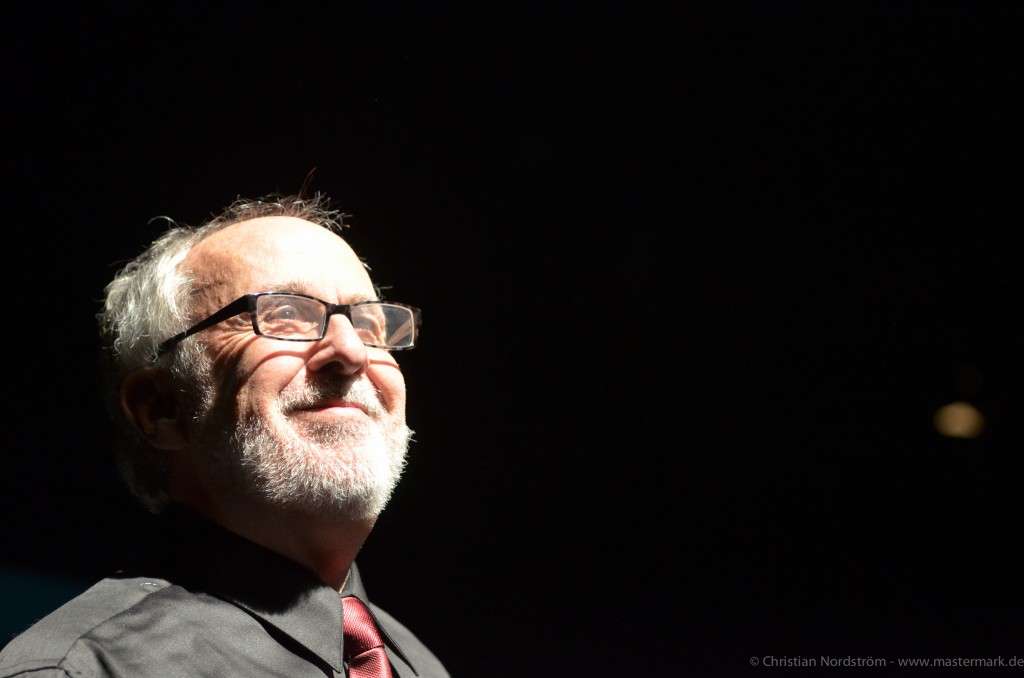 BJ: The only one, I think, unless I missed something, is we sometimes play my song “Westchester Lady” as an encore with Fourplay for fun. Harvey played on the original recording, so there’s some precedent for at least fifty percent of us being involved. But for the most part, we’ve resisted doing that because all of us have our separate solo careers and we felt that, especially early when we were trying to develop the sound and the history of Fourplay as a group, that we wanted to limit our repertoire to just songs that had been created by Fourplay. It just became a sort of rule that when we go on tour we’ll only do those songs. But for better or for worse, we made my song “Westchester Lady” the exception to that.
BJ: The only one, I think, unless I missed something, is we sometimes play my song “Westchester Lady” as an encore with Fourplay for fun. Harvey played on the original recording, so there’s some precedent for at least fifty percent of us being involved. But for the most part, we’ve resisted doing that because all of us have our separate solo careers and we felt that, especially early when we were trying to develop the sound and the history of Fourplay as a group, that we wanted to limit our repertoire to just songs that had been created by Fourplay. It just became a sort of rule that when we go on tour we’ll only do those songs. But for better or for worse, we made my song “Westchester Lady” the exception to that.
MR: But also, you guys are open to the concept of doing things like recording one of each member’s songs. Or maybe full projects based around a composer or an artist like Sarah Vaughan?
BJ: Right, we’ve talked about that many times, doing a project where we take the heat off of ourselves as composers and become interpreters of either standard songs or somebody else’s songs or whatever, and the only precedent we have for that currently was our Christmas album in which we did a number of different traditional Christmas carols and then interpreted them in our Fourplay kind of way, and we loved it. I remember feeling, during the time that we were working on that, that it was just a fun, relaxed project to do and we hope to do something like that in the future as well.
MR: Bob, I really appreciate your talking with us. All the best with the new Fourplay album and all the best with all associated touring and everything in the future.
BJ: Thank you Mike, it’s been a pleasure talking with you.
